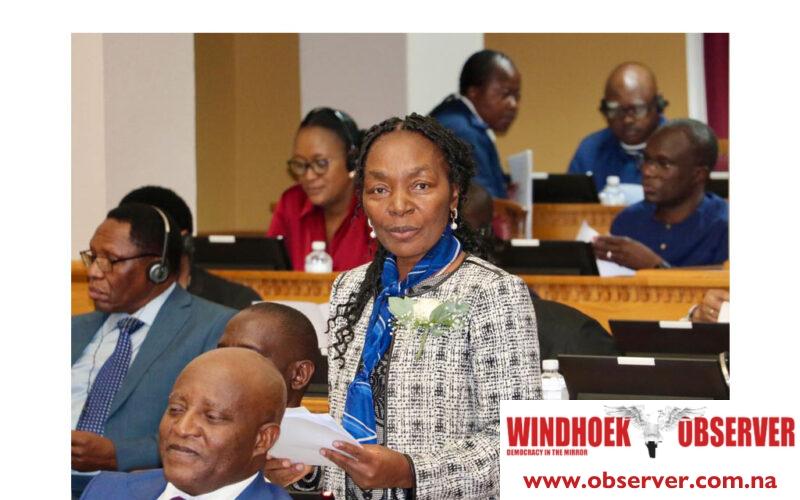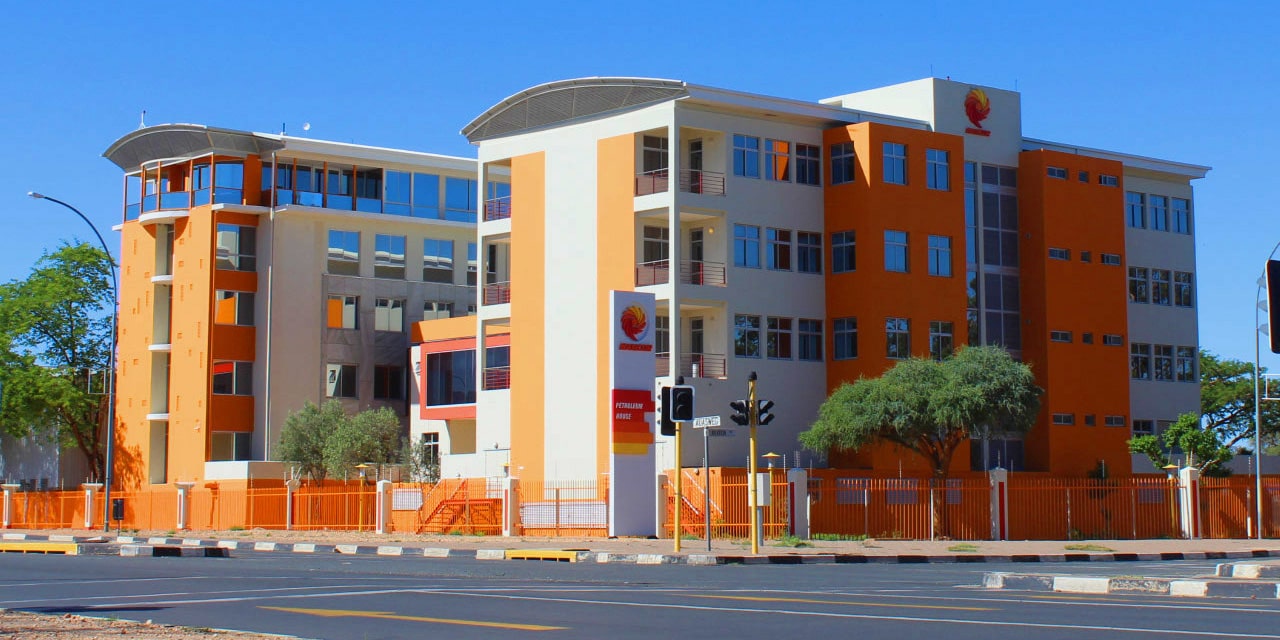Chamwe Kaira and Allexer Namundjembo
Finance Minister Erica Shafudah has placed youth empowerment and food security at the centre of the country’s N$106.3 billion 2025/26 national budget, unveiled in Parliament on Thursday.
Presenting the budget under the theme “Beyond 35: For a Prosperous Future”, Shafudah said the government is prioritising development spending that directly addresses economic challenges facing young people and vulnerable communities.
“We have also made specific provisions to address youth empowerment programmes and capacity enhancement activities,” Shafudah told Members of Parliament.
She added that the budget made allocations to various initiatives to promote food production and stimulate agricultural activities.
A total of N$2.6 billion has been allocated to the vote of Agriculture and Land Reform in the upcoming financial year.
This allocation includes funds for food systems improvement, support for the Green Scheme Programme, and implementation of Phase II of the Neckartal Dam Irrigation Project.
The Ministry of Sport, Youth and National Service will receive N$1.3 billion, including N$200 million for the construction of stadiums, N$200 million for basic sports infrastructure, and N$50 million to support national sports leagues.
“The allocation also considered support for various youth programmes for skills development and capacity building,” Shafudah said.
In what appeared to be a direct response to concerns raised by young and unemployed people, the minister shared a personal experience from a visit to Drimiopsis, near Gobabis.
“This community member, who is an unemployed youth, informed me that he wished he could access money to show his potential. Today, I reflected on that conversation, and I believe this budget provided an answer to his wish,” she said.
Despite reduced revenue from SACU and low activity in the diamond sector, Shafudah said the government remains committed to “safeguarding livelihoods, support the most vulnerable sectors of our society, empower the youth and protect gains in social metrics.”
The development budget has increased by 22.6% to N$12.8 billion.
Funds will go toward agriculture, housing, education, and infrastructure projects that aim to unlock economic opportunities and improve service delivery.
Shafudah said the total budget includes N$79.8 billion in operational expenditure, N$12.8 billion in development expenditure—including N$3.2 billion in externally funded projects—and N$13.7 billion for interest payments.
Revenue for 2025/26 is estimated at N$92.6 billion, reflecting a 1.9% increase from the previous year.
A drop of N$6.9 billion in SACU receipts has added pressure on the national budget.
She also confirmed that the government has saved US$463 million in the Sinking Fund to redeem the US$750 million Eurobond due on 29 October 2025.
A further N$3 billion will be added during the financial year.
The remaining balance of N$2.3 billion will be refinanced through the domestic market.
Tax changes include raising the retirement fund single commutation threshold from N$50,000 to N$375,000 and introducing a N$400,000 annual cap on housing fringe benefits.
These measures will provide N$712.9 million in direct relief to taxpayers over two years.
Opposition lawmakers raised concerns about some allocations.
Shafudah also urged the nation to support the government’s effort to build a more inclusive economy.
“We are still faced with glaring economic challenges and pressures to accelerate development, create jobs and broadly improve the living conditions of Namibians,” she said.
Popular Democratic Movement MP Inna Hengari questioned why the Ministry of Sport still appeared in the budget despite being merged.
She also criticised increased funding to the Electoral Commission of Namibia, saying the major elections had already taken place.
“I am concerned whether the minister had enough time to go through the budget. We can only wait for the formal report next week,” she said.
Landless People’s Movement (LPM) MP Eneas Emvula said youth concerns were overlooked.
“When you look at the allocations, the ministry of youth, which was merged with the education ministry, received low allocations. In my view, I am doubting whether there will be enough funds available for youth initiatives,” he said.
Emvula also said he hopes social grants were prioritised.
“There was not a single mention of it, but I hope there is,” he said.
Affirmative Repositioning (AR) MP George Kambala said a deeper review of the budget will happen next week.
“We want to see how much is going where. For now, we are optimistic, but we want to see the actual figures next week,” he said.
The budget now awaits approval from the National Assembly.




